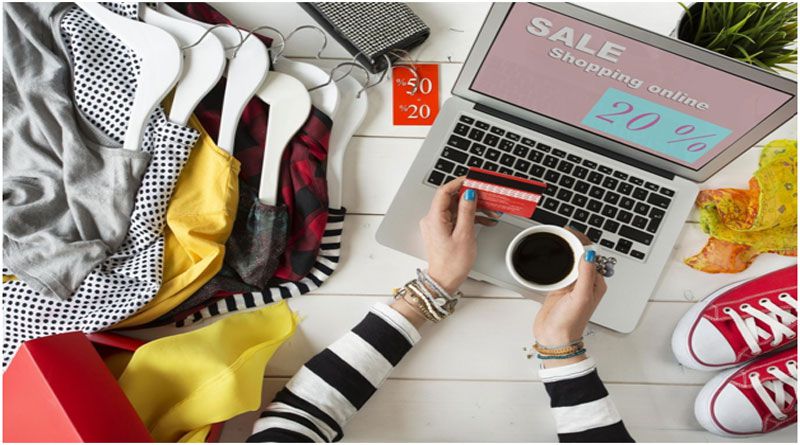One mastery which everyone has gained is the art of online shopping. Technology has revolutionized society, lifestyle. These are the times we live in where every member possesses one or the other technical skill to use it to good effect. The lines have blurred between the good and wrong in the online world. The only way to continue using online services is to protect sensitive information against hackers. Browsing habits present a fair analysis of how vulnerable we’re in the eyes’ of hackers. Hackers consider online shoppers an easy target. They won’t get many places where people share their personal and bank account details both. Does it mean online shopping is a threat? The question we should ask is how to make our online transactions secure. Cyber Security Tips are recommendations and practices aimed at protecting computer systems, networks, and sensitive data from cyber threats. Cyber Security tips often include advice on securing passwords, implementing two-factor authentication, being cautious about phishing attempts, using virtual private networks (VPNs), keeping software updated, and staying informed about the latest cybersecurity threats. The goal is to enhance your overall online security and reduce the risk of falling victim to cyber attacks, data breaches, or other malicious activities by cyber security tips .
Online shopping means extra discounts, vast collection and favourite brands. We agree we cannot resist the urge to buy things online. Why should we? We should follow the right practices to leave no scope for hackers to gain access to our details. You can gather necessary information on top security tips for online shopping on assured bridge. Online shopping sites follow the latest and best security measures to protect data. It becomes our responsibility to follow online hygiene practices to continue enjoying shopping. Following cyber security tips is crucial in today’s digital landscape, where individuals and organizations face various online threats that can compromise their privacy and the security of sensitive information.
1. Keep Software Updated to Avert Danger
You should install the latest version of the operating system, antivirus and browser in place. The security experts stress the importance of keeping the machine updated with the latest versions. The updates versions offer advanced protection against the security flaws found in the last or previous versions. There’s every possibility your machine is leaking the information to hackers. The first step is to check the home computer.
2. Beware of Stinky Phishing Emails, Malicious Links
The best security tip is to rely on your gut instinct. The inbox is the most lucrative option for hackers. They design phishing emails with a specific objective. They throw a bigger bait to entice the prospect. The surprising bit is these fake emails have a higher click ratio to emails send by genuine sellers. The reason is simple. They cannot match the kind of offers and bonuses mentioned by hackers.
You know some things are too good to be true. You should take it as a warning alarm. The other bit is you cannot even trust the unsubscribe button to work in your favour. All these hackers are after is a single click to attack the system. Following the NIST email security guidelines offer a sense of assurance against any unwanted threats. Experts believe you should transfer these emails to the spam box to stop receiving them in the future too.

3. You should know when to Say no to Unnecessary Information
You know what all details are required to shop things online. You need to provide the address for order delivery and card details to pay for the order. There is nothing else you need to mention in the form while making a purchase. You should cancel the order and leave the site the moment you think they’re asking for unnecessary details.
Have you ever thought of paying the delivery agent upon receiving the product? You should consider the benefits the next time you order a product. The benefits are you don’t have to leave the card details on the site and peace of mind attained over it. The card details were never shared so there’s no point of getting stolen or compromised ever.
4. Skip Shopping from Unknown Stores Offering Maximum Discount
You know how to identify an authorized e-commerce site from a fake one. First-time buyers need to follow a cautious approach. These are several things you can check such as design, language, brand collection, prices and contact information etc. All these things put together would make you wonder whether you’ve found a gold mine by stumbling upon the site or scam to rob you off.
5. Visit Secure Online Stores
The address bar should have https:// and lock sign to validate the SSL (Secure Socket Layer) certification. The site should have respective security layers to help you protect the information and enjoy satisfactory shopping experience.
6. Use Password Manager to Lock Private Information
The discussion brings us to one of the most talked about aspects of online security- Passwords. You should have strong passwords and never make the mistake of keeping one or similar passwords for different accounts. We prefer buying products from several sites. You cannot use it as an excuse to have one password for all of them. Try using a Password manager to defeat hackers at their own game. The trick is to play smart and outwit hackers. You need to know which areas are weak or susceptible and take the best measures to build a fortress around them.
7. Use Mobile Apps to Shop
Our mobiles have become personal assistants. Top e-commerce stores have dedicated apps to make the shopping experience convenient for shoppers. You would love shopping on mobile apps after knowing they offer a secured environment in comparison to websites. Hackers don’t want you to shop on mobile apps. They’ve to work individually for each app which means they’ve to put more time and efforts. They want easy targets.

8. Shop with Credit Cards
We’re talking about putting your security first. The banks follow the same rule. They put credit card fraudulent activities above the debit card ones. The difference is quite visible. The banks have got their money at risk, not yours. When you shop online using a credit card, it offers extra security layers. We’re talking about the transaction procedure and bank’s commitment both. The chances are you wouldn’t have to pay in case if fraudulent transactions take place through a credit card, as long as you follow the instructions. Consumers shouldn’t be made to wait to get their money back for using a debit card. Putting this in perspective we would also advise using credit cards for online shopping purposes. The banks have to follow the rules and expect the same of consumers.

Namaste UI collaborates closely with clients to develop tailored guest posting strategies that align with their unique goals and target audiences. Their commitment to delivering high-quality, niche-specific content ensures that each guest post not only meets but exceeds the expectations of both clients and the hosting platforms. Connect with us on social media for the latest updates on guest posting trends, outreach strategies, and digital marketing tips. For any types of guest posting services, contact us on info[at]namasteui.com.

